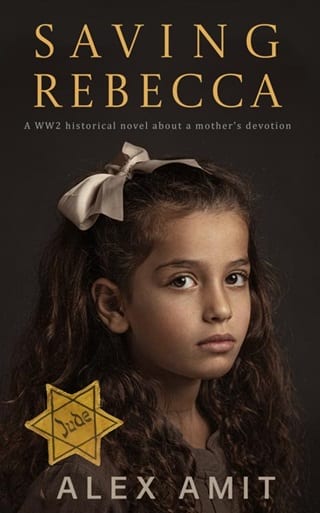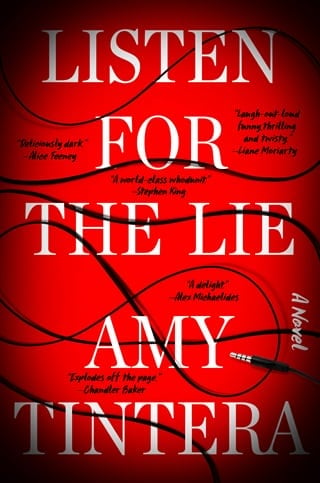18. Auschwitz, a Glimpse of Hope
Chapter eighteen
Auschwitz, a Glimpse of Hope
Early 1943
"Pigs, we've got new ones. You're all dispensable," the block's Polish supervisor opens the door and announces in Polish. "Go in, come on. They won't bite you," she turns and talks to the women outside, as they fearfully walk into the block. They're shaved and dressed as prisoners, but they're much healthier than us. Every few days, they replace the women who didn't survive. The Nazis have no shortage of women who arrive in transports from all over Europe. A frosty winter wind blows through the open door. I raise my head from the wooden bunk and look at them.
They stand at the entrance, observing us women as we lie on the wooden bunks in the stuffy block. They seem to be in shock. Their bodies still haven't adjusted to the tattered, thin prisoners' uniforms and the sensation of their shaved heads. They must have arrived in the morning transport and still haven't realized that these are the gates to hell. The only thing they can be thankful for is that, for now, they're alive. Soon, they'll adopt the same indifferent look that we have, the more experienced prisoners; a look that has been keeping us alive in this place for months.
"Does anyone here speak French?" One of them asks, and I look at her. Even though her hair is shaved off, she seems familiar. I examine her.
"Did you come from Drancy?" I finally ask her. Do I know her?
"Yes," she replies, turns her gaze, and looks at me. She seems to be trying to recall who I am but fails. I have changed, too.
"I'm Sarah," I tell her after a while.
"The German woman?" She asks, and for the first time, this question doesn't sound derogatory but rather as a sigh in relief.
"Josephine?" I ask and sit up. She was one of the women who yelled at us after Rebecca stabbed another girl with a pencil.
"Is that you, Sarah?" She asks and takes a step closer, as if wanting to hug someone familiar, but is startled by the other women's and my appearance.
"Yes, it's me. Where's my daughter? Did you see her in the camp after they took me?" I get off the bunk and stand in front of her. Maybe she knows what happened to her? My stomach churns with excitement. For the first time in months, I don't feel famished or exhausted.
"I'm so sorry that they took you. They're taking everyone, train after train. They're emptying the camp," she replies and looks around in horror. "Where are all the women who arrived on the train with me? Why aren't they here, too?"
"What about my daughter? What about Rebecca? The girl you called ‘the German girl'? Do you perhaps know what happened to her?" I ask her again. I can't tell her where they took all the other people who were transported here with her.
"The girl with the teddy bear and the pencil?" She looks at me again.
"Yes," I reply. I'm shaking.
"I saw her once or twice walking around with her teddy bear, but she disappeared. I didn't see her after that," Josephine feels the torn fabric of her uniform, as if trying to get used to them.
"What do you mean ‘she disappeared'?" I ask her, but deep down I know the answer. Has anyone put her on one of the transports? I feel weak and grab one of the wooden bunks to stabilize myself.
"What is this place?" She asks.
"You lucked out. We work in an explosives and detonators factory and get some food."
"And the rest?"
"They ran out of luck," I respond and climb back into my bunk. I have to believe that Rebecca is still alive and survived the transport. I heard there are children in one of the labor camps. She's there, I'm sure. I touch the Star of Life and Death on my uniform. It's the star that keeps us connected.
"Let's go, dirty pigs, out now," the block supervisor shouts, and we rush outside.
"Come on, Josephine, hurry, don't be last in line," I pull her after me into the line, even though she hated me in Drancy .
Later, when we march to the explosives factory and walk past the platform, I search for Rebecca among the crowds who step off the train. I notice a man in a torn blue uniform and round glasses among the people. Could it be Mathéo, the policeman? It looks like him. I look at him for another moment, but the supervisor shouts at me to walk faster and catch up. Was it him? I'm not sure anymore. Perhaps I only imagined him among the crowd. When I look back again, the man in the torn blue uniform is gone. I'm not sure I didn't just imagine him.
All I know is one thing. I have to work every day and stay alive. This is the only thing I know. On challenging days, I talk to Rebecca in my thoughts and comb her hair. I know she's alive. I have to believe it. Otherwise, there's no point in my staying alive.
Two years later, in January 1945, four months before Nazi Germany surrendered, the Eastern German front collapsed under the Red Army attacks.
"Listen, anyone who can stand on their feet, go outside now," the Polish supervisor enters the block and shouts. She eats better than us. She has the strength to shout.
Slowly, the women get off the wooden bunks and face the door. I can hear her footsteps on the wooden floor, but I stay in my bunk. I'm too frail. What's the point?
"Come on, 132689, get up and step outside," she approaches me. "Don't stay here," she tells me softly, "if you don't get up you won't survive. Come on, it's almost the end of the war, get up," she takes a step back and resumed shouting at the rest. "Everyone, get out."
She loves me and treats me better than the previous supervisor. Sometimes, she also gives me half a slice of bread.
I force myself to get off the bunk, put on my shoes, and go outside to the snow. My feet are injured and sore. I have to be strong.
It's still dark outside, and the lanterns illuminating the electrified fences around us look like distant stars in the snow. We huddle together to keep warm. Not far away, dogs bark, disrupting the early morning silence. Occasionally, thunder rumbles in the distance.
"It's the Russian army. They're coming," someone whispers.
"Come on, everyone, start walking," the supervisor yells out, and we start walking slowly, dragging our feet through the snow. I try to push forward to the head of the column, where the supervisor is, so I won't be whipped like those who lag behind.
Our torn shoes squeak as we walk on the frozen road. I mustn't think about my frozen feet. I mustn't think about anything. On our way, we walk past the train platform. To my surprise, it's deserted in the morning twilight. There's no train at the station. In the distance, I can see the chimneys of the synthetic rubber factory spewing black smoke into the sky. Our explosives factory is behind it, but instead of turning right on the road leading to the factory complex, the foreman continues walking down road toward the forest surrounding the camp. The SS guards who guide us every morning on our way to the factory, continue to march in silence, their cocked rifles aimed at us. Where are they taking us?
I look ahead and see a large group of male prisoners walking slowly in front of us. Are the Nazis evacuating the camp because of the approaching Red Army?
"Keep walking," the supervisor shouts at us, dropping the usual derogatory ‘pigs.'
I look back at the camp. Another group of female prisoners is walking behind us. In the gray morning light, I see the chimneys that work ceaselessly and the brown watchtowers surrounding the camp. Another moment passes, and we walk along a paved road into the forest. When I look back again, I can no longer see the camp.
I feel nothing; joy, sorrow, sadness, nothing at all. I'm hollow. I can only think about one thing – moving forward. I concentrate on nothing but my next step. I don't care where they take us. We are a long line of prisoners walking west on the frozen road. I can only hear our footsteps on the road and the clatter of the small enamel food bowls tied with rope to our uniforms.
We've been marching west for days. I have no idea how many days have passed since we left Auschwitz. The supervisor and the SS soldiers no longer bother to call us by our number. The guards take out those who can no longer walk. That's what their rifles are for. They don't let anyone linger . Walk, walk, walk. Only in the evening do we stop for the night in a barn or an open field in the snow, and then we get some soup and half a loaf of bread per prisoner. Walk, walk, walk. Sometimes, we walk past other groups of prisoners. Once, we passed a group of POWs who were standing on the side of the road. They were American pilots in khaki uniforms. Most of them had good military coats and boots. They weren't as skinny as we were. They ignored the German guards and took army biscuits and milk cans out of their pockets and threw them to us. I managed to catch two biscuits and a milk can. I drank the milk, slowly ate one biscuit, and left one in my pocket for a day when I'd be really hungry. Walk, walk, walk, don't stop for a second .
One day, a Polish farmer gave me two potatoes, and the next day, a Czech farmer ran from the field and placed a small block of cheese and some bread in my weak hands. He quickly walked away before the Nazi guards could hurt him, and I couldn't thank him. I think I'm too feeble to speak; I can only whisper.
One evening, I hear two guards speaking in German and saying that we're about to walk to a camp in southern Germany, but I don't care anymore. I just walk, mindlessly, step after step, after step. I need to keep walking. Only when I think I'm about to collapse do I talk to Rebecca. I can't tell whether it's real or imaginary. I ask her how she is and if she had soup and chocolate today. I promised Charlotte that I'd believe she was alive. And as long as she's alive and I can talk to her, then I'm alive, too.
 Fullepub
Fullepub 



